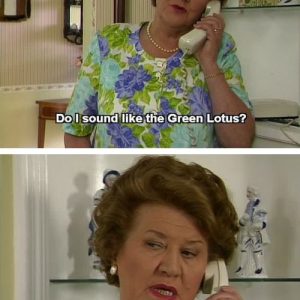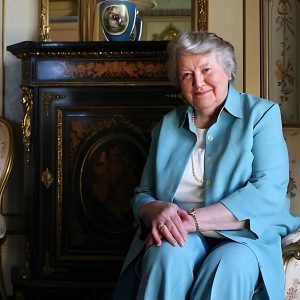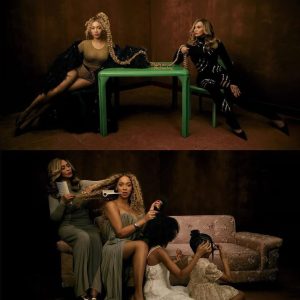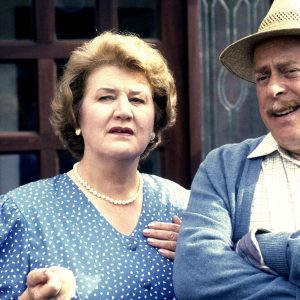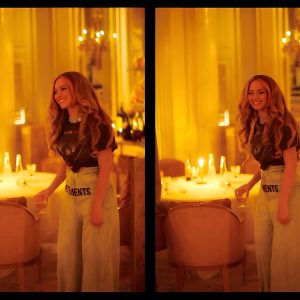A Tale of Two Hyacinths: Legacy, Laughter, and a Battle Over a Beloved Sitcom Revival
In the ever-evolving world of television, where nostalgia meets reinvention, few revivals have stirred the pot quite like the BBC’s “Young Hyacinth.” A prequel to the cherished ’90s sitcom Keeping Up Appearances, the one-off special is sparking spirited debate — not just among fans, but between two women intrinsically linked by one unforgettable character: Hyacinth Bucket (pronounced, of course, “Bouquet”).
At the heart of the drama is Dame Patricia Routledge, the original and indomitable Hyacinth, whose portrayal of the comically aspirational social climber made Keeping Up Appearances one of the most enduring British sitcoms of all time. Routledge, now in her mid-90s and enjoying a richly deserved retirement, made headlines after sharply criticizing the BBC’s decision to revisit classic comedies — calling the entire endeavor “desperate.”
“I think she should be incredibly flattered,” counters Kerry Howard, who steps into Hyacinth’s prim shoes in Young Hyacinth, a retrospective piece that explores the character’s humble beginnings. In an interview with Radio Times, Howard — best known for her work on Him & Her — expressed both admiration for Routledge and disappointment in her reaction. “She was scathing about the whole project. Not just specifically our show,” she said. “We’re not recreating her show. We’re going backwards and explaining her character. She doesn’t know that.”
A Legacy Not to Be Taken Lightly
To understand the emotional weight of this television clash, one must first grasp the significance of Keeping Up Appearances. Airing from 1990 to 1995, the show became a staple of British comedy. Routledge’s Hyacinth, with her flowery hats, ever-patient husband Richard, and obsession with etiquette, embodied the hilarious tragedy of middle-class pretensions. The series was as much about her outlandish efforts to climb the social ladder as it was a study of denial, delusion, and dignity.
And yet, underneath the pearls and garden parties, Hyacinth was, at her core, deeply human. Her insecurities — masked by her determination to appear refined — struck a chord with viewers around the world. The show’s international syndication success proved her appeal was universal. In short: Hyacinth was never just a joke. She was a phenomenon.
Enter: The Young Hyacinth
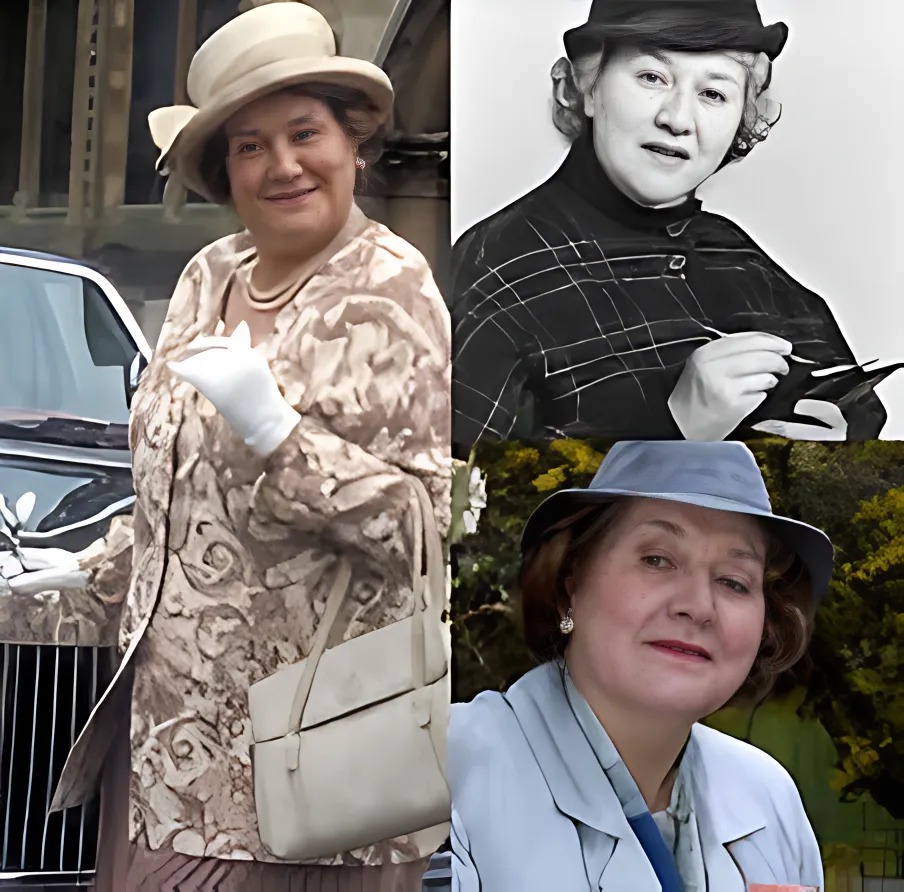
“Young Hyacinth,” penned by original series creator Roy Clarke, dives into the character’s early life — long before she hosted candlelight suppers or corrected the milkman’s pronunciation of her name. Set in the 1950s, the special imagines a teenage Hyacinth navigating a chaotic working-class household, trying to maintain her sense of decorum despite a family that seems intent on sabotaging it.
Here, we meet a Hyacinth still finding her voice — but the signs of her future self are already in place. Played with wide-eyed energy and crisp comedic timing by Howard, this younger incarnation of the character dreams of fine china and social recognition even as she scrubs floors and referees between boisterous siblings.
“She has that spirit already,” Howard explains. “That refusal to accept the world as it is, and the belief that she can rise above it. That’s what makes her timeless.”
Howard stars alongside James Wrighton as a young William, Hyacinth’s future husband. Their on-screen dynamic gives fans a glimpse into the early days of the relationship that would later become one of the sitcom’s most iconic elements — Richard’s eternal exasperation balanced against Hyacinth’s unyielding charm.
Two Women, One Icon
Still, there’s no ignoring the elephant in the drawing room: Patricia Routledge’s disapproval looms large. As the woman who built Hyacinth from the ground up, Routledge’s opinion carries immense weight. But is her critique a warning against the dilution of legacy — or simply a misunderstanding?
“I think that’s why she responded like that,” Howard mused. “Because she was thinking some other actress is going to come along and play her part. But it’s not that at all. There’s no way she could come back and play young Hyacinth!”
Indeed, Young Hyacinth is less a remake and more a respectful exploration of what made the character tick. And far from undermining Routledge’s contribution, Howard and the production team argue that the prequel is an homage — a love letter to the woman who brought the character to life and etched her into British cultural history.
Whether the two actresses will ever see eye to eye is unknown. But fans can’t help but imagine the potential for a cheeky meta reunion — perhaps a candlelight supper where Hyacinth (past and present) reconciles with a toast of the finest (room-temperature) white wine.
The Bigger Picture: Are Sitcom Revivals Worth It?
The controversy surrounding Young Hyacinth taps into a broader debate: are sitcom revivals and reboots a celebration of the past, or simply creative recycling? The BBC’s wave of retro programming — including remakes of Porridge, Are You Being Served?, and Open All Hours — has drawn both praise and scorn. While some hail the nostalgia, others argue that lightning rarely strikes twice.
And yet, shows like Young Hyacinth offer a different path. Rather than attempting to revive a finished story, they seek to deepen it. In an age where origin stories dominate both film and television — from Joker to Better Call Saul — this approach feels less like replication and more like excavation.
“People want to understand how iconic characters became who they are,” says television historian Dr. Sarah Middleton. “And when done well, a prequel can enhance the original rather than overshadow it.”
A Tribute, Not a Threat
Ultimately, Young Hyacinth stands not in competition with Keeping Up Appearances, but beside it — an affectionate backstory to one of television’s most delightfully exasperating women. While Dame Patricia Routledge may remain unconvinced, many fans are embracing the new project as a chance to once again visit that peculiar world where appearances are everything, and dignity is always one step away from disaster.
Whether you’re Team Routledge or Team Howard, one thing is certain: Hyacinth Bucket’s influence endures. And in the world of British comedy, that’s no small bouquet.
